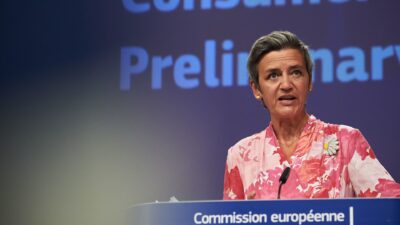The Florence Competition Programme and the Centre for Antitrust and Regulatory Studies (CARS) of the University of Warsaw cordially invite you to the workshop on “Populism and Antitrust: The Role of the ECN+ Directive.”
The event aims to gather academics, practitioners, officials from national competition authorities, EU institutions, as well as industry representatives to discuss the role of populist governments on competition policy enforcement in Europe. In particular, the workshop aims at discussing whether and to what extent the ECN+ Directive, currently transposed by the EU Member States, might counterbalance such an influence. During the event, Prof. Maciej Bernatt will present his monograph on “Populism and Antitrust”, recently published by Cambridge University Press.
Background
Competition law is designed to promote a consumer-friendly economy, but for the law to work in practice, competition agencies – and the courts who oversee them – must enforce it effectively and impartially. Today, however, the rule of populist governments is challenging the foundations of competition law in unprecedented ways.
In his recent monograph, Prof. Bernatt analyses these challenges and describes how populist governments have influenced national and regional (EU) competition law systems. Taking Hungary and Poland as case studies, Prof. Bernatt proposes a new theoretical framework to measure and understand the illiberal influence of populism on competition law systems. He invites a discussion on how to enhance the resilience of competition law systems in the EU vis-à-vis challenges posed by populist governments.
The Directive 2019/1 (i.e. ECN+ Directive) aims at strengthening the independence of the National Competition Authorities (NCAs) of the EU Member States. In particular, under Art. 4, the NCAs board members can be dismissed by the national government only if they are “found guilty of serious misconduct under national law” and not “for reasons related to the proper performance of their duties.” The ECN+ Directive also grants to the competition agency the right to prioritize its work, by selecting which complaints to further investigate, thus strengthening the autonomy of the institution. Finally, Art. 5 ECN+ Directive points out that the agency should have sufficient human and financial resources to carry out its work in an autonomous manner. EU Member States were expected to transpose the ECN+ Directive by 4th February 2021. However, only 18 EU Member States have so far notified the European Commission of measures transposing the Directive into the national legal system.
The workshop aims at comparing the legislative approaches followed by the Member States in transposing the ECN+ Directive, in particular the provisions concerning the agency independence. Secondly, the question is whether and to what extent such provisions will increase de facto the autonomy of the competition agencies. Although the provisions of the ECN+ Directive seem rather general, the question is whether and to what extent the European Commission might in the future start infringement proceedings against the EU Member States restricting the autonomy of their competition agency, by thus breaching the ECN+ Directive.
Practical information
The workshop is organized in a ‘hybrid’ format: while invited speakers should be present at the EUI campus in Florence, the audience will be able to follow the conference sessions online; the conference will be broadcasted via Zoom.
Participation in the conference is free of charge. However, prior online registration is required in order to receive the Zoom credentials.
Speakers

 Pier Luigi Parcu
Pier Luigi Parcu Giorgio Monti
Giorgio Monti Maciej Bernatt
Maciej Bernatt Eleanor Fox
Eleanor Fox Anna Vernet
Anna Vernet Šarūnas Keserauskas
Šarūnas Keserauskas Henri Piffaut
Henri Piffaut Szabolcs Szendro
Szabolcs Szendro Natalie Harsdorf
Natalie Harsdorf Federico Ghezzi
Federico Ghezzi Gábor Gál
Gábor Gál

